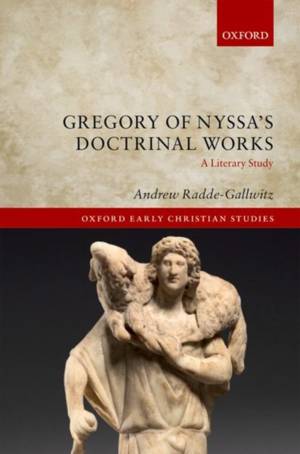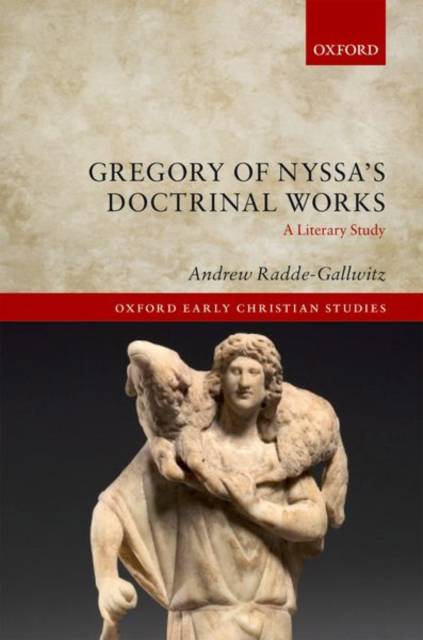
Je cadeautjes zeker op tijd in huis hebben voor de feestdagen? Kom langs in onze winkels en vind het perfecte geschenk!
- Afhalen na 1 uur in een winkel met voorraad
- Gratis thuislevering in België vanaf € 30
- Ruim aanbod met 7 miljoen producten
Je cadeautjes zeker op tijd in huis hebben voor de feestdagen? Kom langs in onze winkels en vind het perfecte geschenk!
- Afhalen na 1 uur in een winkel met voorraad
- Gratis thuislevering in België vanaf € 30
- Ruim aanbod met 7 miljoen producten
Zoeken
Gregory of Nyssa's Doctrinal Works
A Literary Study
Andrew (Assistant Professor, Assistant Professor, University of
€ 167,45
+ 334 punten
Omschrijving
Gregory of Nyssa is firmly established in today's theological curriculum and is a major figure in the study of late antiquity. Andrew Radde-Gallwitz presents a reading of the works in Gregory's corpus devoted to the dogmatic controversies of his day.
Specificaties
Betrokkenen
- Auteur(s):
- Uitgeverij:
Inhoud
- Aantal bladzijden:
- 324
- Reeks:
Eigenschappen
- Productcode (EAN):
- 9780199668977
- Verschijningsdatum:
- 14/06/2018
- Uitvoering:
- Hardcover
- Afmetingen:
- 256 mm x 167 mm
- Gewicht:
- 670 g

Alleen bij Standaard Boekhandel
+ 334 punten op je klantenkaart van Standaard Boekhandel
Beoordelingen
We publiceren alleen reviews die voldoen aan de voorwaarden voor reviews. Bekijk onze voorwaarden voor reviews.









